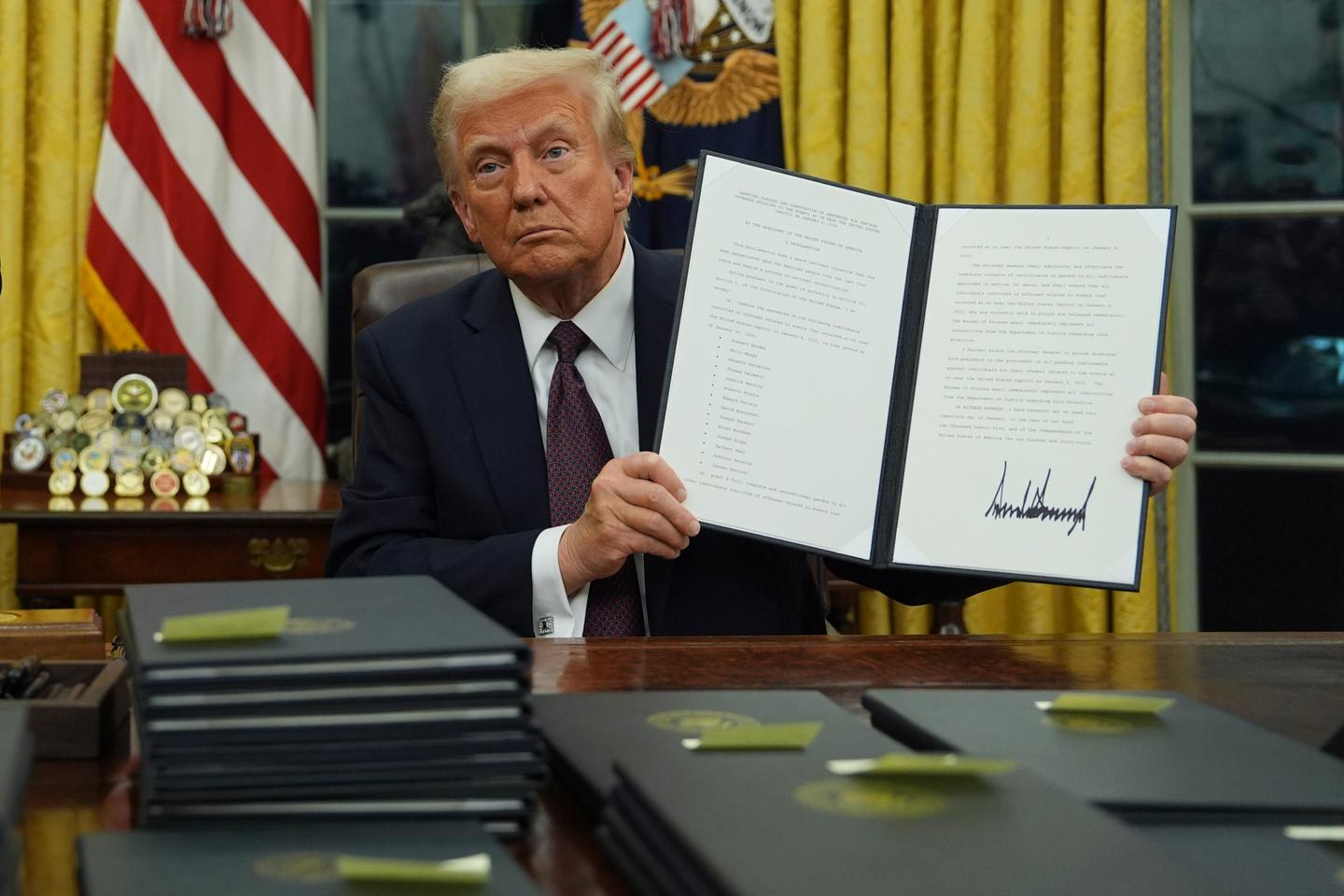


On Monday, January 20, the first day of Donald Trump's second term in office, words and deeds often clashed, as reflected by a flurry of presidential executive orders. First, the words, spoken from within the US Capitol building, where his supporters had attempted a power grab to keep him in power on January 6, 2021, oscillated between proactive rallying and aggressive rhetoric toward his opponents who had dismissed him.
He promised a "golden age" and sketched out the prospect of seeing the Star-striped US flag on Mars, assuring listeners that his mere arrival at the White House had put an end to "decline" – a vision largely contradicted by the state of the economy he had inherited. Deeming it necessary to portray himself, after the assassination attempt that had targeted him during the presidential campaign, as "saved by God to make America great again," the Republican also portrayed his country, under his auspices, as being "a nation like no other, full of compassion, courage and exceptionalism," one whose "power will stop all wars and bring a new spirit of unity to a world that has been angry, violent, and totally unpredictable."
These efforts at lyricism, however, struggled with a hard-to-contain spirit of revenge that underscored Trump's difficulty getting over contingencies. The focus of some of the presidential decrees he signed, one after the other, after the swearing-in ceremony, confirmed this. By referring to "Liberation Day," the Republican effectively only addressed his camp.
Climate denial
He has also put his money where his mouth was, by granting presidential pardons to almost all of the January 6 rioters, who had been prosecuted, tried and convicted by the courts. While the new president advocates freedom, women have been deprived of the federal right to abortion since 2022, because of Republicans. Similarly, transgender people are, henceforth, required to identify themselves by the gender they were assigned at birth. Trump has also begun a vast plan of eliminating programs designed to promote inclusion and diversity, as if to ward off the inevitable end of White majority in the US, an event that has been tormenting his electorate.
Beyond these identitarian markers, Trump has given observers a glimpse of the extensive use he intends to make of the strength his re-election has given him, coupled with knowledge of the inner workings of the federal state that he had lacked at the start of his first term. There is no guarantee that what remains of the international order set up by the US at the end of the Second World War will survive. Trump has confirmed his rejection of multilateralism with a new exit from the Paris Climate Agreements, which goes hand in hand with his climate denial, as well as his withdrawal from the World Health Organization; and he has repeated his neo-imperialist desires regarding the Panama Canal, which he intends to "take back" control of, in defiance of all conventions.
Thus, the showdown with American institutions will begin, as the avalanche of executive orders demonstrates the temptation of unfettered executive power. By seeking to roll back the jus soli right to citizenship for those born on American soil, guaranteed by the Constitution's 14th Amendment, Trump has struck the first blow against the institution he has just sworn to preserve.
